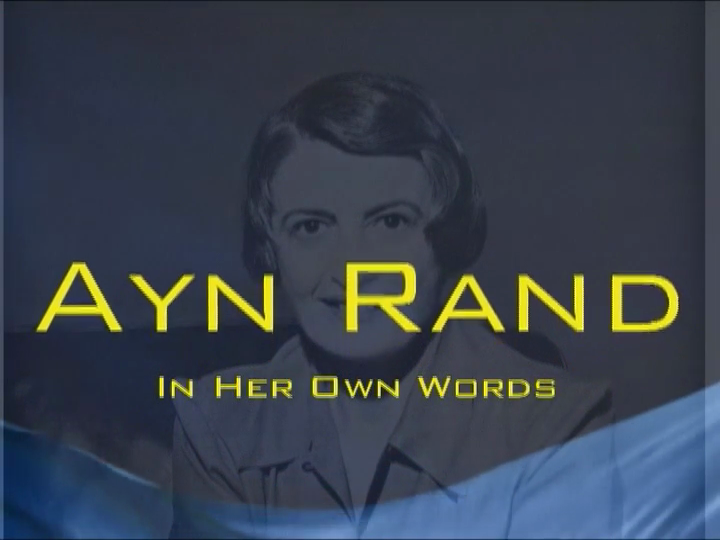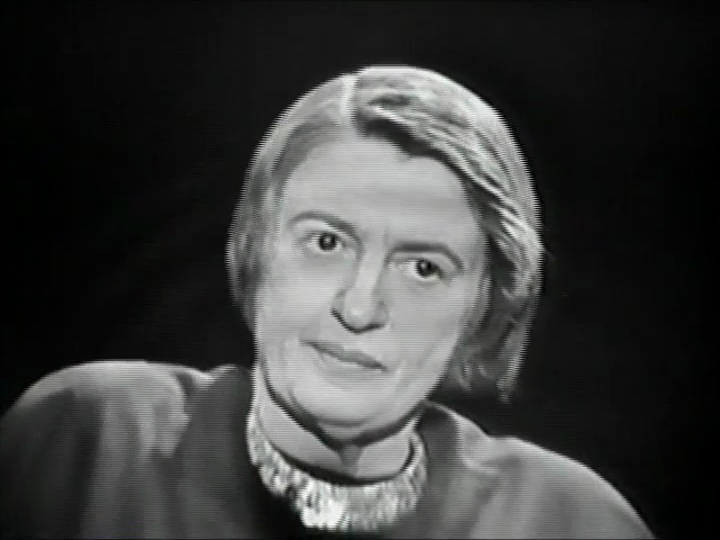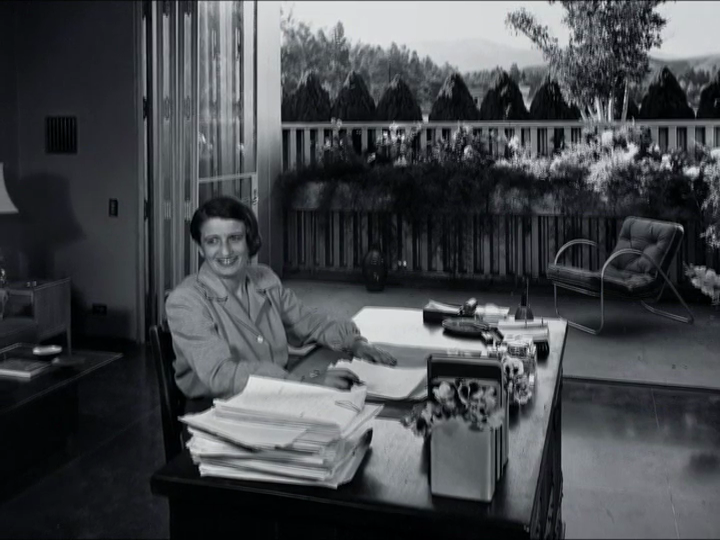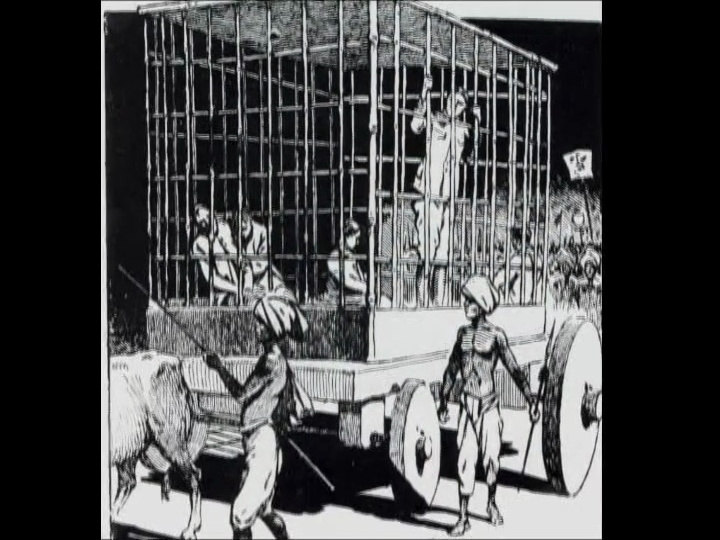BUY FROM AMAZON: CLICK HERE! 
STUDIO: Pop Twist, Northern River Productions
MSRP: $13.44
RATED: Not Rated
RUNNING TIME: 72 minutes
SPECIAL FEATURES:
- Trailers
- Featurettes
- Collectible Booklet
The Humans
Ayn Rand…from beyond the grave!
The Pitch
Picture this, Canadian investors, a steady montage of people running in the Russian snow, interviewers yelling at an aged Ayn Rand, and pictures her smiling and writing in her early, happier days, as snippets of interviews with Rand entertain her objectivist masses with musings of her past and philosophy.
The Nutshell
As fun as it sounds, not bothering to question your controversial subject makes your tribute to her, Mr. Anderson and Mr. Little, really, really bland.
The Lowdown
Few genres get thrown around as liberally as the documentary. Taking shape in low-brow celebrity gawking reality television as well as award winning political exposés, filmmakers force the term into a corner, leaving the audience to ask, is this an actual document? Is this objective? Is this reality? These questions, startlingly enough, hurt the credibility from the get-go, thus generating several types of docs that strive for authenticity and definitiveness.
So as part of the eternal struggle that’s less about making a good film that has the viewer question the subject, director John Little, as part of an ongoing series of docs by the director, gives the reins back to his subject, a dangerous tactic if you’re lacking a voice of your own. Ayn Rand: In Her Own Words suffers from the faux-first person narrator by unapologetically and unquestioningly praising its subject without taking into account the author’s own interests. Ultimately, In Her Own Words is neither as ambitious, objective, controversial, or as selfish as Rand’s own words tended to be; and instead of something interesting, there’s a shortsighted view of the author that’s as ironic as it sounds.
Little and his partner, Robert Anderson, take a fairly conventional look at the author, chronicling her life from birth to death, taking brief pitstops at the moments that shaped her work. Beginning in the early 20th century, a recording of Rand explains her early life in Russia during the Soviet Revolution. Rand describes her disgust with the collectivism and nationalism imposed on the Russian people, dreaming of an ideal man whom works purely out of self interest, opposing both the state and his fellow man. Escaping the iron fist of the newly founded Soviet Union, Rand makes for the homeland of every idealistic revolutionary, Hollywood, where she found herself as a screenwriter and novelist. From here, she began work on her major works, such as The Fountainhead and Atlas Shrugged, forming a huge following around her own objectivist philosophy.
Whether or not you are a fan of Rand’s work will ultimately decide whether or not you’ll buy into the film itself. By granting Rand the right to tell her own story, Anderson and Little allot little room for discourse. Rand expresses her love for capitalism and self-interest, and goes unopposed by the filmmakers. Occasionally, they’ll lapse into brief interviews between the writer and TV journalists, like Mike Wallace and Phil Donahue, but their points barely scratch the surface of Rand’s deeper ideas. Their quick outbursts at the writer merely serve as another chance for Rand to express herself.
For a writer as polarizing as Rand, the film feels far too one sided. Committing entirely to their form, the directors give very little to the film, outside of their own love and respect for their subject. All their worship keeps their film largely contained, giving yet another soapbox to a writer whose philosophy leaves no room for grey area or misinterpretation. Things fall to redundancy quickly, making a nice segue to boredom.
There are great documentaries made about their narrators. Robert Evans’ soothing baritone made The Kid Stays in the Picture an interesting portrait of the producer as well as comprehensive timeline of movie making in the 1960s and 70s. That movie didn’t just have its subject, it also had a strong understanding of how to get the audience interested. In Her Own Words fails to recognize its medium, turning into a bland biography tailor made for a high school English class. There’s no other perspective or commentary, nor is their any sense of style–unless, of course, by style, you mean a series of pictures and brief clips of the time periods discussed and Rand’s numerous interviews. Anderson and Little cannot find an interesting way to present Rand’s words, so they take the easy way out, a method even Rand, who prided herself on symbolism and the artistry of the written word, probably would’ve hated.
If nothing else, successful documentaries offer a glimpse into a different way of life, where the director often takes a back seat to the subject. The story will either grow in the editing room or before the camera lens. The film should elicit some thought from its audience by the manner in which it’s told. In Her Own Words is far too cut and dry for something so open. Rand’s words are the basis for the film, and the directors’ high praise of her only reinforces it. There’s no struggle for understanding; no search for another side. So while it definitely gives you a good look at how Rand viewed herself (she basically thinks she’s the best), it does not make for a very interesting film.
The Package
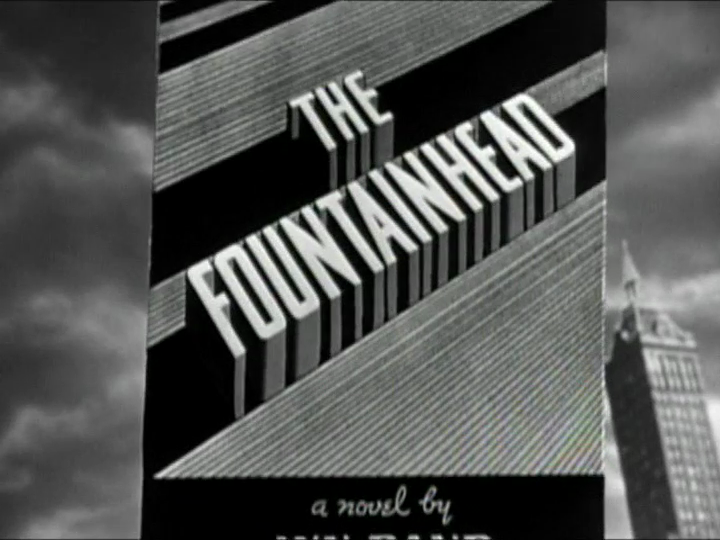
Special thanks to Alan Greenspan for his input.
Ayn Rand: In Her Own Words actually comes with a nice booklet that pretty much tells you everything that’s going to happen in the film. The five-minutes I spent reading it spoiled pretty much the next 72. If you pick up this disc (which I highly suggest you don’t) avoid diving to deeply into this before watching. Major spoilers await.
The disc itself comes with what appeared to be a wealth of special features, focusing on some what also appeared to be some interesting aspects of Rand’s life. In actuality, they were simply clips cut from the film for irrelevancy or time–neither is properly stated, because their advertised as featurettes. Very tricky, my normally shortsighted directors.
Rating: 




Out of a Possible 5 Stars
